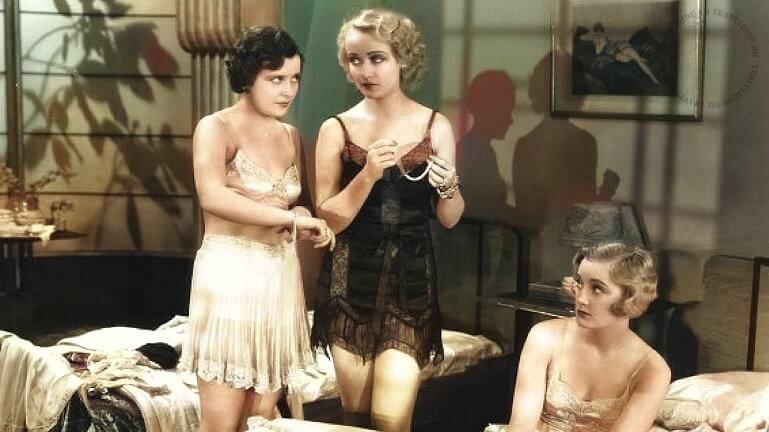
Hin fact, the representatives of this ancient profession did not live calmly and measuredly in any country. Beatings, infringement on the part of clients, owners of pimps' brothels, the police, in one way or another, have always been present in their lives.
A little about the motives that pushed into prostitution
It must not be forgotten that only a few went to sell their bodies "at the call of the heart." Most girls and women fell on this slippery path not at all of their own free will. According to the French professor Paran du Chamlet, who examined 5,000 prostitutes in the late 19th and early 20th centuries, the motives for this occupation were by no means rosy.

In general, hopeless need, loss of parents, orphanhood and other similar reasons were indicated by more than a third of the women in the group. Of these, specific reasons were cited:
- For need and poverty - 57
- On the death of parents and homelessness - 647
- Need to feed younger siblings - 29
- The need to feed old and sick parents - 37
- Widowhood, burdened with children - 23
- Temptation from the owner and deprivation of a place - 123
- Abandonment by lovers - 559
Harassment and restrictions on prostitutes at the beginning of the 19th century in Europe were ubiquitous and extremely varied. For example, after reading the relevant decision of the police department of the city of Münster in Germany, one involuntarily asks the question - where could they be in principle?
Ordinances on prostitution II of the Münster police department of January 4, 1901.
Prostitutes are prohibited from:
- Visiting taverns and drinking houses, as well as pleasure gardens, including the zoological and palace gardens.
- Visiting places where theatrical and other performances are given.
- Visiting festivities.
- Stay under arrest. (absolutely strange point, author's note).
- Stay at the station and near it, near the barracks and higher educational institutions.
- Visiting places of large concentrations of people, namely: exhibitions arranged in the open air, parades, fairs and all kinds of public entertainment.
- It is forbidden to ride in open carriages, to use droshky or omnibuses for driving.
- Staying in courthouses, if their presence is not necessary, it is forbidden to appear on the streets in those places that are usually visited by the public.
- Stop in the streets, squares during the time from April 1 to October 1 from 8.15 pm to 4 am, and from October 1 to April 1 from 8.15 to 5.45 am.
What was the situation with prostitution in pre-revolutionary Russia
In pre-revolutionary Russia, there was also a system of regulation of the activities of prostitutes.
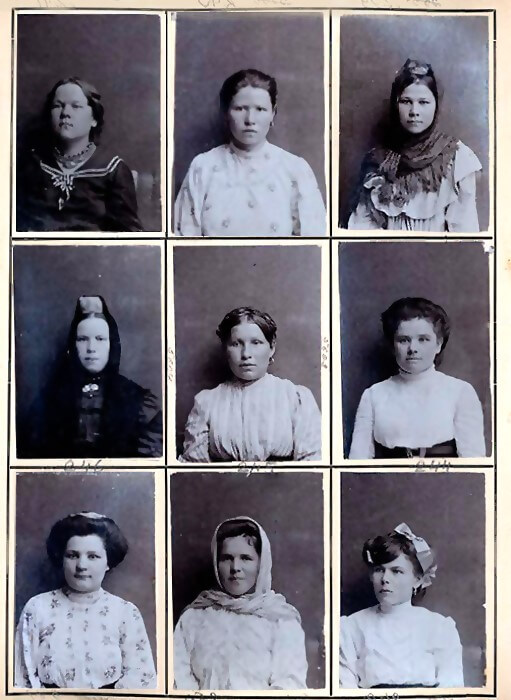
Bodies of special supervision and registration were created - medical and police committees. In the period from 1843 to 1917 they existed in St. Petersburg, Moscow, Odessa, Warsaw, Vilna, and Riga.
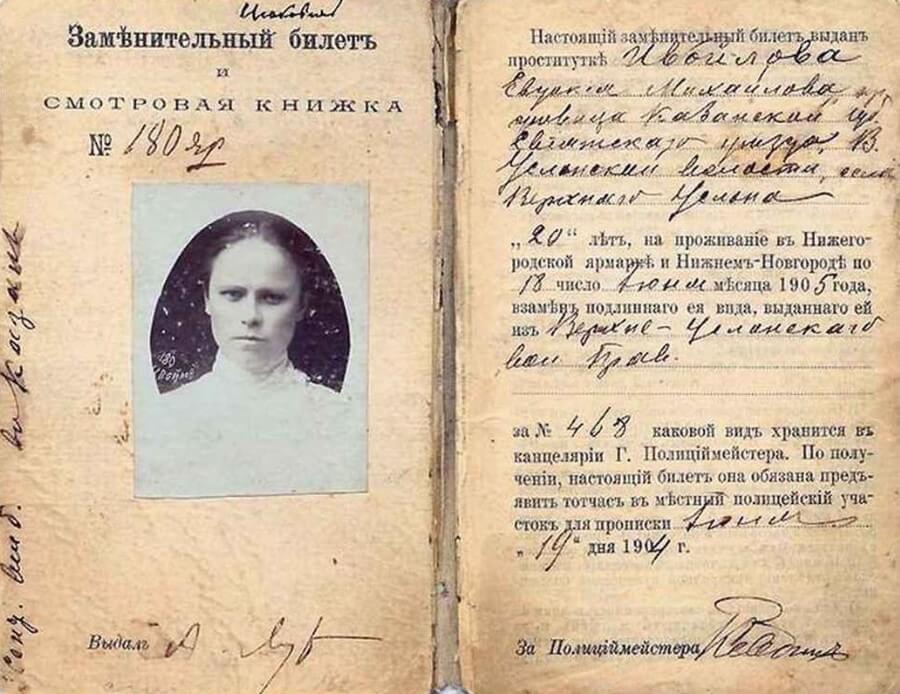
One of the measures of the regulatory system was the issuance of the so-called yellow ticket. Here is an example from the Instructions for Medical and Police Supervision in St. Petersburg.
Registration and issuance of a yellow ticket
“Without exception, all wandering women of depraved behavior are immediately subjected to a medical examination upon finding them” (§ 5).
“Regardless of this, the police are instructed, if they see some wandering women, to immediately send them for examination to the Kalinkin hospital” (§ 6).
“The Committee, when it becomes aware of women who are engaged in debauchery, supplies them with the established medical cards (§ 13).
“The Committee supplies medical tickets to those who prove to be of dubious behavior” (§ 63).
[ist. Rubanovsky "The duty of debauchery" Magazine "V. Right." 1905]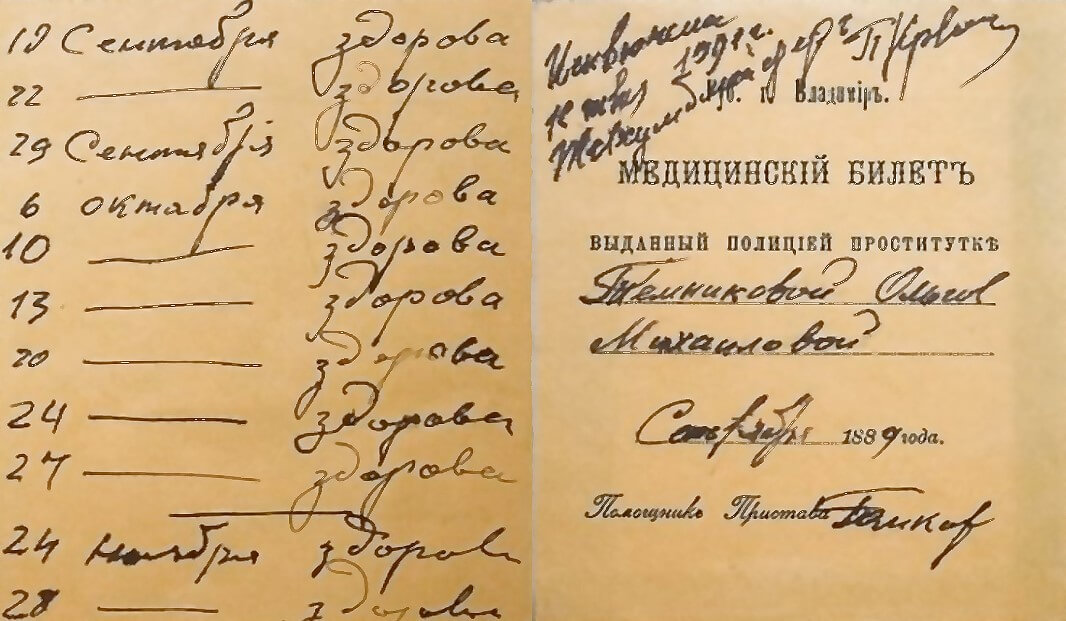
Entry into prostitutes was often forced, since there were certain financial arrangements between the police and the owners of brothels.
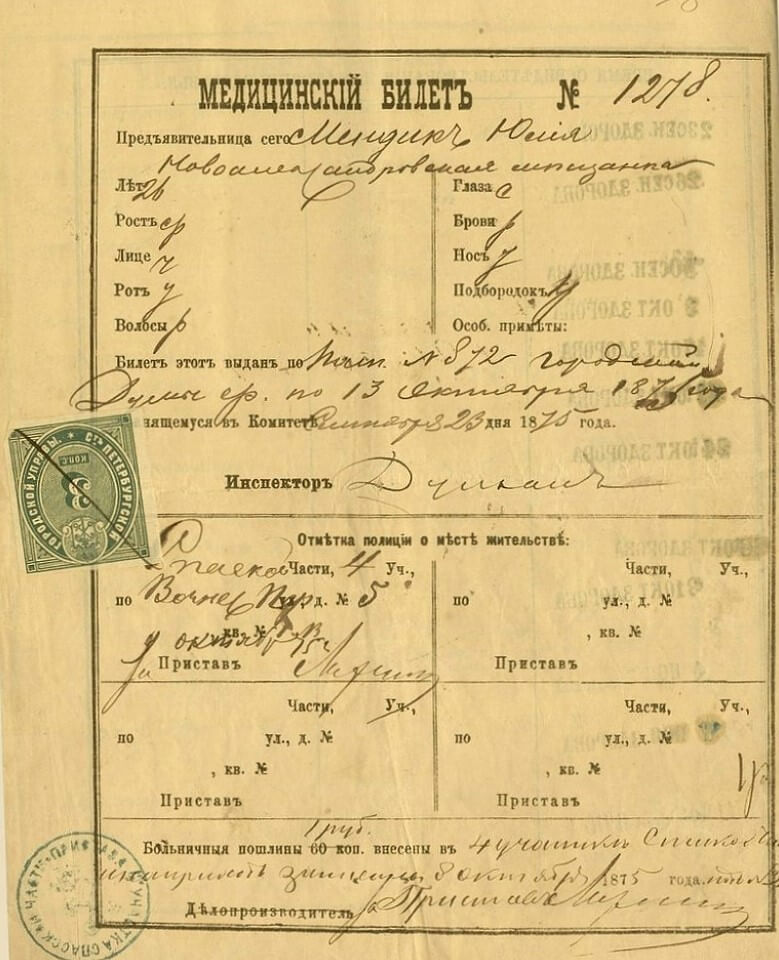
An example from the court decision in the case of collegiate registrar Golotov
“The secretary of the Office of the Odessa Police Chief Collegiate Registrar Golotov was found guilty of:
- forced Pavlovskaya to enter a brothel, having arrested her for more than a week.
- forced petty-bourgeois Orlova to enter Goldova's brothel, threatening deport by stage and take into custody.
To ensure that a registered woman does not disappear from the Committee's field of vision, de-listing and abandoning her early lifestyle were subject to all sorts of difficulties.
Rules on leaving a brothel.
“Public women who wish to leave the trade of debauchery may be excluded from the lists of the Committee on the exact certification that they have really left this trade” (§ 22).
It was almost impossible to get such an “accurate” certificate. In a word, practically no rights and lifelong bondage ...



When Germany legalized prostitution just over a decade ago, politicians hoped it would create better conditions and greater autonomy for sex workers. However, it didn't work. Exploitation and trafficking in human beings remain serious problems.
When the law on prostitution was passed, the German Civil Code was also amended. The phrase "encouragement of prostitution" as a criminal offense was changed to "exploitation of prostitutes". "Supplying girls" is a punishable offense if it is "exploitative". The police and prosecutors are disappointed because these elements of the crime are very difficult to prove. A pimp can be considered an exploiter, for example, if he collects more than half of a prostitute's earnings, which can rarely be proven. This is how things are in Germany these days. Well, we all know.
Why is everything bad in Germany now? And why, in spite of such deteriorating conditions, women who want to quickly earn extra money flock to Germany, the largest prostitution market in the European Union - a fact that even owners of brothels confirm.
A couple of years ago, travel agencies offered tours to German brothels lasting up to eight days. Walking is "legal" and "safe". Potential buyers are promised up to 100 "completely naked women" dressed only in heels. Customers can also be met at the airport upon request and taken to the clubs in a BMW 5 Series. Expensive, but any whim for your money 🙂